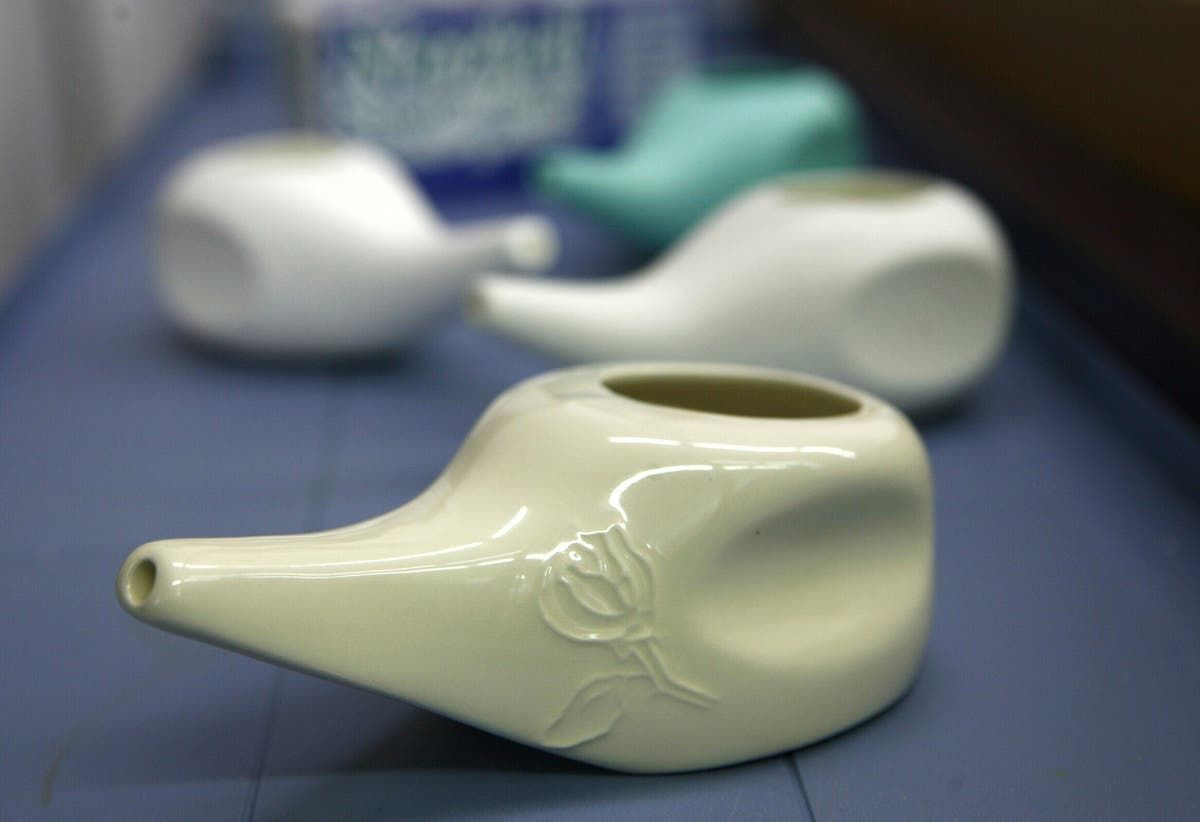Nasal rinses to relieve sinus congestion with tap water can lead to deadly infections by brain-eating amoebas, a new study has warned.
Researchers at the US Centers for Disease Control and Prevention (CDC) report the cases of 10 people over the past decade who contracted an infection with the amoeba. acanthamoeba after nasal rinsing and three of them died.
All 10 individuals had compromised immune systems and seven had chronic sinusitis, and “many used tap water to rinse their noses,” according to the study published Wednesday in the CDC's journal Emerging Infectious Diseases.
Amoebas are single-celled organisms that are known to cause parasitic infections in humans, including skin and eye diseases, as well as fatal brain infections.
acanthamoeba It is present throughout the world and lives in soil and many types of water, including lakes, rivers, and tap water.
The amoeba is known to be an opportunistic pathogen that infects people with weak or compromised immune systems, such as people with diabetes, cancer, HIV, or a history of organ transplantation.
In people with weak immune systems, while nasal rinsing can provide health benefits, such as clearing the sinuses and preventing other types of infections, the process can also introduce pathogens, “especially if non-sterile water is used,” the researchers warn. researchers.
Scientists fear 100% deadly 'zombie deer disease' is evolving to infect humans
In another study, published Wednesday in the same magazine, doctors from Karachi point out the case of a 22-year-old Pakistani man who was infected with the amoeba. Naegleria fowleri after a nasal rinse with tap water that he did as part of a religious ritual.
Amoeba brain infections can be fatal and there are very few survivors worldwide, and the disease also has “no specific treatment,” researchers warn.
But thanks to “aggressive” early medical intervention, the man survived.
Researchers warn that rinsing the nose with tap water can lead to infections caused by amoebae, including acanthamoeba and Naegleria fowleri.
If tap water is used to rinse, doctors say it should be boiled for a minimum of one minute, or three minutes at elevations above 6,000 feet, and cooled before use.
“All healthcare providers who care for immunocompromised people should educate their patients about acanthamoeba infections, including how to recognize symptoms and how to practice safe nasal rinsing,” they added.












